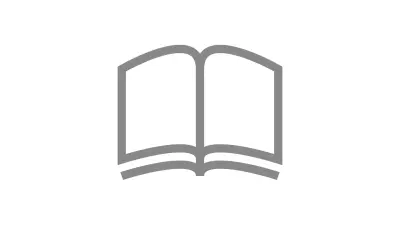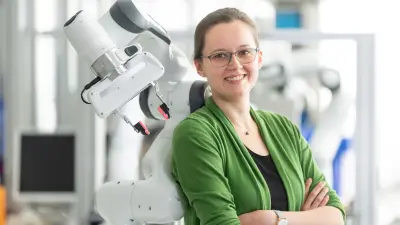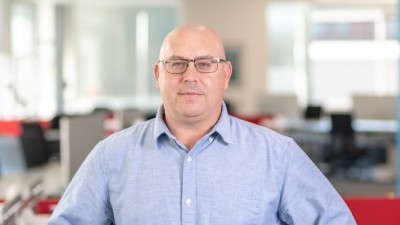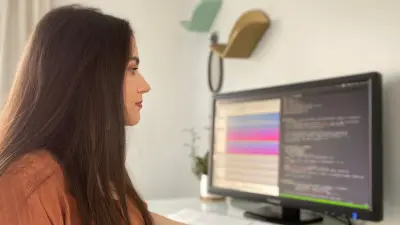Dr. Alexander Dieter Kleiner
Chief Expert for Navigation of Distributed Autonomous Systems

My work always focused on topics relating to AI and robotics, either in academia or industry. In academia, I completed my doctorate, post-doctoral degree, and habilitation in this area. In industry, I worked in Los Angeles, California at iRobot, working on the Roomba and Terra robots, and at FaceMap, I developed deep learning solutions. To date, I have published almost 100 papers and designed more than a dozen successful robot systems that have taken first place at international competitions. I was an Executive at RoboCup, General Chair and PC Chair of the IEEE SSRR Symposium, and regularly work as an Associate Editor at the AAMAS, IROS and ICRA conferences.
Please tell us what fascinates you most about research.
I have been fascinated by artificial intelligence since my childhood. This curiosity led to my first thesis in the late 1990s, which concerned teaching autonomous driving to a Khepera robot using reinforcement learning and neuronal networks. Nowadays, I am fascinated by the incredible advances which are made every day in my field. This opens the door to a host of new possibilities and challenges that will have a direct influence on our lives.
What makes research done at Bosch so special?
There is a lot going on at Bosch with many “things” already existing today, and a great deal of competence when it comes to building new “things”. This provides a challenge for developing innovative algorithms that merge these things and make their interplay even smarter.
What research topics are you currently working on at Bosch?
In my role as Chief Expert in Robotics and AI, I lead the development of software for future household robots. In addition, in the new applied portfolio, I lead the development of new AI technologies in the field of machine learning and neural networks for use in manufacturing in our plants, for example. My goal is to bring results from research into Bosch products in close consultation with our portfolios.
What are the biggest scientific challenges in your field of research?
Today, one enormous challenge is scaling up intelligent systems to become multi-task solvers. While there are many outstanding problem-specific solvers, there are practically no systems available that are capable of handling a wide variety of diverse problems at the same time. Today’s systems solve tasks such as playing chess, mowing lawns and vacuum cleaning. But there is no general solution for board games or household cleaning, i.e. systems that are capable of handling complex situations in a creative manner.
How do the results of your research become part of solutions “Invented for life”?
Artificial intelligence methods, such as those we develop for household robots for example, simplify the human-machine interface on the one hand, while also facilitating everyday tasks for humans on the other. A few years ago, I collaborated with a team to develop software that enables users to have certain rooms in their homes (e.g. the kitchen) cleaned by a robot using voice commands. This software has since been used more than 100 million times by people all over the world and has become part of their everyday lives.
Curriculum vitae
Since 2022
Chief Expert for Navigation of Distributed Autonomous Systems, Bosch Corporate Research, Renningen (Germany)
2017
President Artificial Intelligence and Machine Learning, FaceMap LLC, AI Deartment, Malibu, CA (USA)
2014
Senior Principal Robotics Scientist with Technology Lead, iRobot, Technology Organization, Pasadena, CA (USA)
2011
Habilitation and Associate Professor, Linköping University, Artificial Intelligence & Integrated Computer Systems, Linköping (Sweden)
2010
Post-doctoral Research Associate, Carnegie Mellon University, Robotics Institute, Pittsburgh, PA (USA)
2008
Doctoral Degree and Assistant Professor, University of Freiburg, Foundations of Artificial Intelligence (Germany)

Selected publications

A. Kleiner (2018)
- AI Magazine, 39(2), 89-91

A. Kleiner (2017)
- A. Kleiner, R. Baravalle, A. Kolling, P. Pilotti, and M. Munich
- In Proc. of the IEEE/RSJ Int. Conf. on Intelligent Robots & Systems (IROS). Vancouver, Canada, pp. 5346-5352

Kolling et al. (2017)
- Andreas Kolling, Alexander Kleiner, Stefano Carpin
- IEEE Transactions on Robotics (T-RO), pp. 1-15

Dornhege et al. (2016)
- Christian Dornhege, Alexander Kleiner, Andreas Hertle, and Andreas Kolling
- Journal of Field Robotics, vol. 33, no. 4, pp. 537-558
Get in touch with me
Dr. Alexander Dieter Kleiner
Chief Expert for Navigation of Distributed Autonomous Systems


